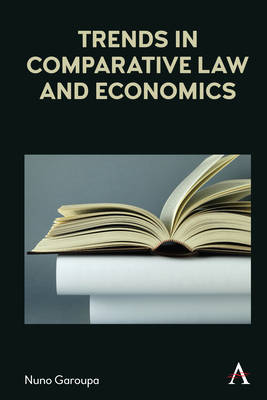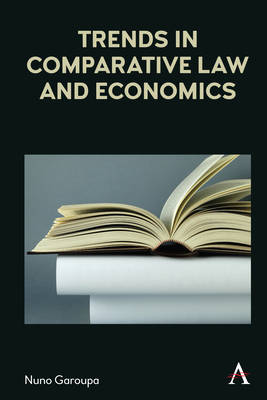
- Retrait gratuit dans votre magasin Club
- 7.000.000 titres dans notre catalogue
- Payer en toute sécurité
- Toujours un magasin près de chez vous
- Retrait gratuit dans votre magasin Club
- 7.000.000 titres dans notre catalogue
- Payer en toute sécurité
- Toujours un magasin près de chez vous
Description
The book fills a gap since there is no quick reference in comparative law and economics at the moment. The book can be seen as a short introduction to comparative law and economics, a helpful guide to additional reading and a textbook for a short course or seminar. Comparative law and economics is a growing field in the interaction between law, economics and comparative political science. It includes both strands of the traditional literature, namely the role of legal families and microeconomic analysis of legal rules in a comparative perspective.
The book opens with a short introduction about the method and the standard discussion between common law and civil law. It brings in the debate over the legal origins' theory and its consequences in terms of economic growth. It presents the study of courts at the global level and the importance of comparative judicial politics to stimulate a better understanding of comparative law and economics. The book also covers microeconomic analysis of legal rules with a few applications (titling of property, cost-shifting rules, plea-bargaining) and additional reading recommendations to the reader (for additional examples). The book then focuses on lawyering, with an emphasis on varying regulation of the legal profession around the world. The book concludes with a short summary of possible research developments in the next few years, namely behavioral and empirical advancements.
Spécifications
Parties prenantes
- Auteur(s) :
- Editeur:
Contenu
- Nombre de pages :
- 84
- Langue:
- Anglais
Caractéristiques
- EAN:
- 9781839985355
- Date de parution :
- 14-06-22
- Format:
- Livre relié
- Format numérique:
- Genaaid
- Dimensions :
- 152 mm x 229 mm
- Poids :
- 294 g







